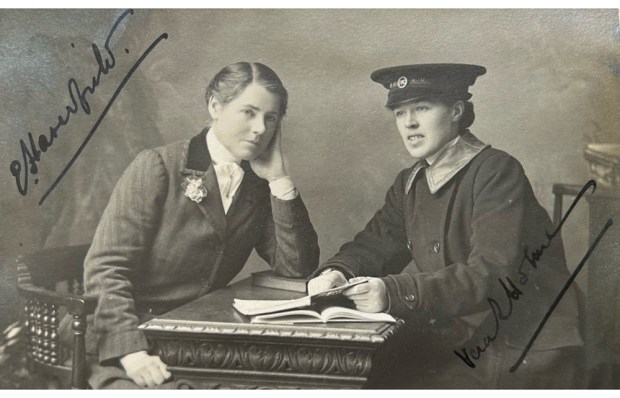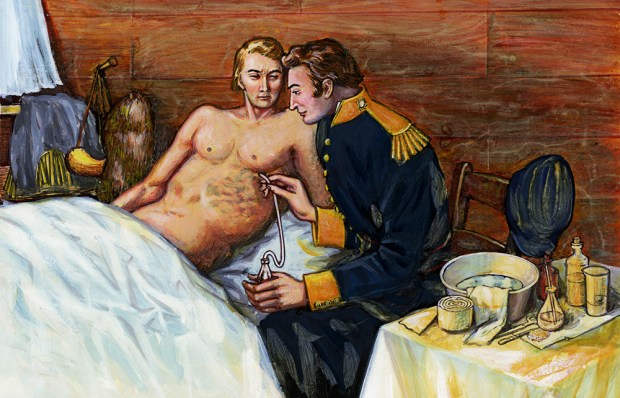Ursula Le Guin once described speculative fiction as ‘a great heavy sack of stuff, a carrier bag full of wimps and klutzes’. By this definition, Elizabeth Knox’s genre-hopping fantasy The Absolute Book must count as oversized baggage; but it trundles along winningly, even if it’s a trifle stout at 640 pages.
Taryn Cornick is our girl. She is a scholar whose debut book, a study of libraries, is the toast of the literary circuit. But she is also the recipient of an unlucky inheritance: an elusive manuscript, nicknamed the Firestarter, last spotted in the library of her grandfather’s ancestral pile. From these Borgesian beginnings, the story orbits into wider and wilder expanses. Eventually it encompasses shape-shifting demigods, interdimensional gates, a war between Heaven and Hell and (naturally) book festivals. Imagine Philip Pullman’s Dark Materials on a panel with Neil Gaiman’s American Gods, moderated by Rachel Cusk nursing a migraine.
Some elements shiver with genuinely otherworldly imagination. Knox’s Purgatory, a dim, dull place where souls wait at platforms for trains that never come, is as memorably chilling as Pullman’s harpy-haunted world of the dead. But the novel’s pacing is unpredictable and the dialogue occasionally has you ducking for cover. No one, for instance, has ever looked into my eyes and said: ‘You’re so sad, and haunted, and out of step with others.’ But perhaps I’ve been hanging out in the wrong fantasy books.
We spend a good chunk of time in Sídh, the idyllic fairyland of Gaelic mythology. There, the ‘Ladies and Gentlemen’, the sídhe, are sustained by ‘the Taken’: humans they have snatched to serve and love them. And every 200 years they barter those human lives with Hell for continued peaceful existence — ‘dealing in souls by bulk’. This cosmic protection racket, the Tithe, is a startling conceit. It reminded me of the way Le Guin’s novels take ideas and cunningly unspool them. But The Absolute Book pulls its punches: we never see the true, bloody consequences of the Tithe. This leaves us with an intricately realised world, but few especially compelling reasons to stay there.
The Absolute Book is big, ambitious and brassily inventive. But lift it from the knees: you’re liable to put your back out otherwise.
Got something to add? Join the discussion and comment below.
Get 10 issues for just $10
Subscribe to The Spectator Australia today for the next 10 magazine issues, plus full online access, for just $10.
You might disagree with half of it, but you’ll enjoy reading all of it. Try your first month for free, then just $2 a week for the remainder of your first year.














Comments
Don't miss out
Join the conversation with other Spectator Australia readers. Subscribe to leave a comment.
SUBSCRIBEAlready a subscriber? Log in